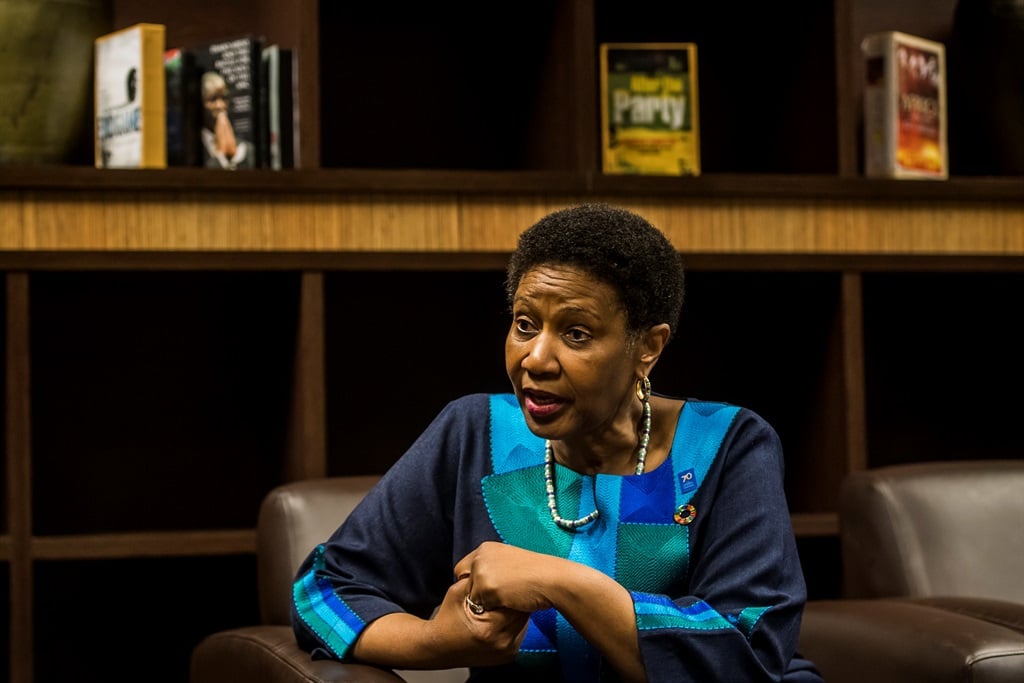
Phumzile Mlambo-Ngcuka, Executive Director UN Women, Kate Gilmore, Deputy High Commissioner for Human Rights and Tawanda Mutasah, Amnesty International Senior Director call on the international community to counter dangerous challenges to civic activism
Anniversaries prompt us to take stock.
Seventy years after the United Nations adopted the Universal Declaration of Human Rights, 20 years after it adopted the Declaration on Human Rights Defenders, and 100 years after the births of both Rolihlahla Mandela in South Africa’s Eastern Cape and Albertina Sisulu in Transkei, we confront the reality of a world in which our agreed common goals for humanity are dangerously challenged.
In more than half of the countries of the world, civic activism is deeply constrained, in particular for those who have traditionally been and continue to be advocates for the marginalised, disempowered and silenced.
This curtails the quality of people’s lives, their ability to equally enjoy their human rights, participate in democratic discourse, and live in peace and with freedom.
From Poland to Palestine, Zimbabwe to Nicaragua, organising in peaceful protest continues to be fraught with danger for many people around the world.
We have seen an unprecedented crackdown on civic activists in recent years; 300 human rights defenders were murdered in 2017, and the death toll of environmental rights defenders rose fourfold between 2002 and 2017.
These facts tell us that we have fallen far from the ideals that should unite us.
The ability of all individuals and groups to express dissent is vital to a functioning and resilient democratic society.
Human rights activists need a meaningful, supportive environment in which to conduct their work.
Nowhere is this more true than in the sphere of gender equality and the particularly restrictive conditions within which women’s rights defenders operate.
We fight for gender equality not just because women continue to face discrimination in every country on earth, but because gender equality leads to the fulfilment of multiple rights for all of humanity.
In Mandela’s and Sisulu’s South Africa in 1956, more than 20 000 women and girls from all walks of life marched against apartheid.
Today, feminist mobilising remains at the coalface of the social justice movement.
Women and girls of South Africa have protected human rights by exposing violations, accelerating change and leading movements such as the #TotalShutDown to end gender-based violence.
Since the beginning of January 2018, we have seen both states and non-state actors respond to peaceful assembly and protest with repression – often of a gendered nature – whether through physical brutality or sophisticated technological intervention.
Often, defenders of women’s rights and gender equality are the first to come under attack, in a chilling signal that further repression of rights will come.
Defenders of our human rights must be recognised and supported, along with all those who fight to hold and advance the line for people to exercise their individual and collective rights to expression, association, assembly, and participation.
The success of the 2030 Agenda for Sustainable Development, agreed to by all the governments of the world in 2015, depends on those same governments fulfilling their commitments and not preventing their populations from holding them to account if they fail in their duty to respect, protect and fulfil human rights.
There can be no compromise in this, and we must be fierce in holding out for the necessary guarantees.
As we look back to our inspirational leaders of the past, and ahead to 2030, we resolve jointly to make 2018 the year we recommit ourselves to protect the space for civic activism, to show solidarity to all those facing violations of human rights and to stand up for those rights.
We must stand together and link our formal and informal powers to bring the change that present and future generations ask of us.
And we must recognise the crucial power of young feminist leadership and actively support it.
All of us who convened in South Africa last week have committed to the call for a roll back of repressive laws that penalise civic activism and feminist mobilising; to denounce human rights violations wherever they take place and act against reprisals; to guarantee and advocate for safe space for civic activism; to create and insist on enabling space for civil society through free information sharing and access; to fund and defend civil society; and to support independent media.
Mandela and Sisulu’s leadership, their lives of struggle, and their dedication to humanity and to freedom, gifted the world with a legacy of human rights that, in this year of the 70th anniversary of the Universal Declaration of Human Rights, assumes renewed significance.
As an adult, Mandela’s voice was heard across the world as he spoke out on women’s rights and gender equality and on the vital role played by civil society.
Likewise Mama Sisulu guided young activists, civic formations and women’s organisations throughout South Africa, reminding us that, when “you strike a woman you strike a rock”.
Their legacy, and our obligation in all our organisations and spaces, is that we continue to fight for justice and equality.
Change is as possible as it is necessary.
• On August 15 2018, UN Women, the United Nations entity for women’s empowerment and gender equality, the United Nations Office of the High Commissioner for Human Rights, and Amnesty International, the world’s largest international human rights organisation, joined the Government of South Africa and other partners in a High Level Forum to reflect on the lessons of historic civic activist leaders, consider the challenges facing civil society today, and envision a united response.




 Publications
Publications
 Partners
Partners








